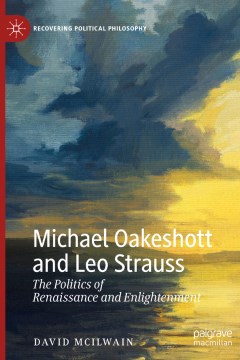Repository | Book | Chapter

(2019) Michael Oakeshott and Leo Strauss, Basingstoke, Palgrave Macmillan.
This chapter elucidates the subtle relationship between Michael Oakeshott's skeptical political theory of a neutral civil authority and his rich conception of poetic individuality, offering a detailed investigation of how Oakeshott moved between mythology and political theory in combining the thought of Hobbes and Augustine. McIlwain argues that Oakeshott used these two thinkers to separate the human will from the fatalism implied by a completely rational account of experience and then to "eternalize" Hegel at the historical stage of the pax Romana. Oakeshott's adherence to a modern philosophical monism is thus revealed to be elevated by an earthly and poetic Augustinianism that avoids both "Gnostic" historical necessity and supernatural dualism. Oakeshott's theory is then described in terms of the almost "religious' intensity of self-completion.
Publication details
DOI: 10.1007/978-3-030-13381-8_9
Full citation:
McIlwain, D. (2019). Michael Oakeshott and augustinianism after Hobbes and Hegel, in Michael Oakeshott and Leo Strauss, Basingstoke, Palgrave Macmillan, pp. 177-198.
This document is unfortunately not available for download at the moment.



